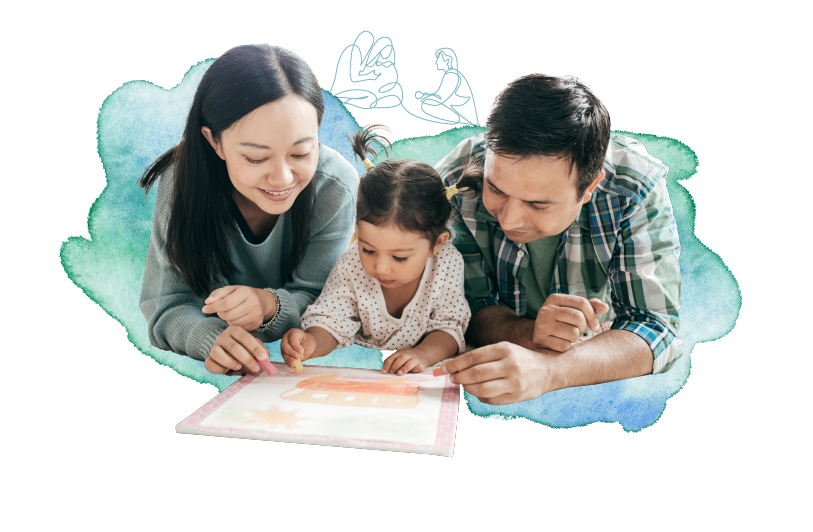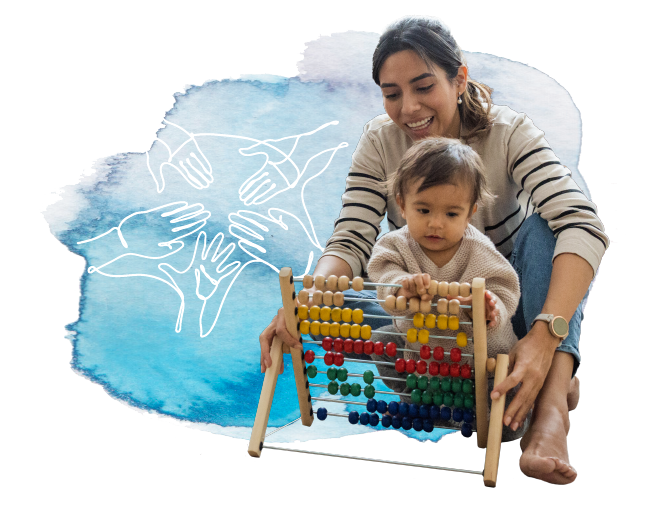1 Million Neural Connections per Second.
That’s how quickly a child’s brain is developing between birth and age three.
Research and clinical experience demonstrates that
the earliest relationships and experiences a child has with parents and other caregivers
dramatically influences their overall health and success in school and life.










